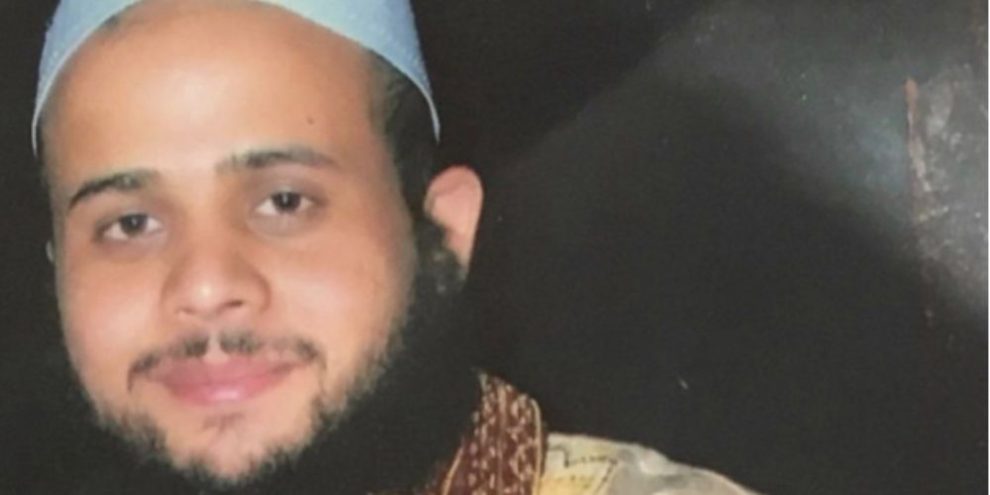
By Paola Loriggio in Toronto
Human actions and decision making led to the death of a mentally ill man in an Ontario jail roughly seven years ago, coroner's counsel told inquest jurors Friday in urging them to rule the death a homicide.
Soleiman Faqiri's death wasn't an accident, Julian Roy told the coroner's inquest, noting correctional officers bundled the 30-year-old man down a hall and into his segregation cell on purpose, sprayed him with pepper foam to subdue him on purpose, and repeatedly struck and kneed him on purpose.
Correctional staff also intended to place Faqiri in a "vulnerable, face down position," hold him down, restrain him with handcuffs and shackles, and leave him there, Roy said. There is no evidence anyone meant to kill Faqiri, "but there is ample evidence that those involved in his restraint were well aware that their actions might result in his death," he said.
"My submission is that to tell the truth about how Mr. Faqiri died, that you should make a finding of homicide. In other words, that Mr. Faqiri didn't just die on Dec. 15, 2016, he was killed," Roy said.
Lawyers for the Ontario Public Service Employees Union, which represents correctional staff, said they oppose a finding of homicide as a cause of death, proposing instead that Faqiri's death be found accidental.
Charlie Sinclair, one of the lawyers for OPSEU, said none of the officers intended for Faqiri to die, and noted a manager who came to the cell partway during the struggle testified she only saw ministry-approved use of force. He argued jurors should reject the video statement of another inmate who said guards were beating Faqiri before the manager arrived, noting the man previously admitted there were inconsistencies in his account.
Establishing a cause of death is one of the findings jurors must make in a coroner's inquest, but it does not carry legal liability. No criminal charges have been laid in connection with Faqiri's death.
Jurors may also make recommendations aimed at preventing similar deaths, but they are not required to do so, and any they do issue are not binding.
The coroner presiding over the inquest, Dr. David Cameron, told jurors the five possible causes of death in such a proceeding are natural, accidental, suicide, homicide, and undetermined.
He instructed them to consider an autopsy report and a subsequent report by the province's chief forensic pathologist in reaching their verdict. Dr. Michael Pollanen found Faqiri died from an arrhythmia resulting from his enlarged heart in combination with a number of other factors. He listed as contributing factors the bruises and other injuries Faqiri sustained, the pepper foam, and the fact that Faqiri was left in a prone position.
Cameron told jurors that if they accept these factors as contributors, they can rule Faqiri's death an accident if they believe those things were done inadvertently. If they believe they were done on purpose -- even if not for the purpose of causing harm or injury or death -- they should choose homicide, he said.
The jury's verdict doesn't have to be unanimous, just agreed on by the majority of five, on a balance of probabilities, he said.
Faqiri, who had schizophrenia, died at the Central East Correctional Centre in Lindsay, Ont., on Dec. 15, 2016, after a violent struggle with correctional officers that broke out as he was being led from the shower to his segregation cell.
He had been taken to the jail after allegedly stabbing a neighbour while experiencing a mental health crisis, and the inquest heard his condition deteriorated significantly while in custody.
While many correctional and medical staff members voiced concerns about Faqiri, he wasn't taken to hospital, nor did he see a psychiatrist, the inquest has heard. The physician who saw Faqiri in jail testified he thought it was too risky to send the man to hospital when he would likely just receive medication and get sent back to the facility.
The court also ordered Faqiri undergo an assessment of his fitness to stand trial, but he was deemed too unwell to attend the appointment, the inquest heard.
His parents and siblings tried to visit him several times, but were told he was too ill to see visitors, it heard.
In his closing submissions, coroner's counsel Prabhu Rajan called Faqiri's death a "preventable tragedy" that highlights the "profoundly problematic" manner in which people experiencing mental illness are treated in Ontario's correctional system.
Rajan laid out 56 jointly proposed recommendations for jurors to review and potentially adopt, including the creation of an independent provincial oversight body for the correctional system that could look into complaints and launch its own investigations.
Other proposed recommendations include establishing a dedicated agency to deliver and oversee health care within the correctional system; creating special needs units with specialized staff within correctional facilities; setting up formalized relationships between correctional centres and psychiatric hospitals; and ensuring people with mental health issues undergo an assessment of their fitness to stand trial within 24 hours of entering the judicial system.
Others relate to mental-health and use-of-force training for correctional staff, increased staffing levels, greater co-ordination between corrections and health-care providers, and a family-centred approach to ensure relatives of those in custody are kept informed and given compassionate support.
"You have the power to send a message through your recommendations to tell those who themselves have the power to make change to do what it takes ... to ensure that what happened to Soleiman can never happen again, that this is an urgent and potentially fatal problem that absolutely needs immediate solutions," Rajan told jurors.
"Because, as we heard, there are others with serious mental health issues at this moment, who reside at CECC (the jail where Faqiri was held) and likely reside at other correctional facilities."
The proposed recommendations are endorsed by the Faqiri family; the Empowerment Council, a patient advocacy group for people using mental health or addiction services; the Canadian Mental Health Association; the Canadian Muslim Lawyers Association; and Dr. Brent MacMillan, all of whom have standing at the inquest.
Other parties support some, but not all, the proposed recommendations, and several suggested recommendations of their own.
Banner image: THE CANADIAN PRESS/HO, Yusuf Faqiri
This report by The Canadian Press was first published Dec. 8, 2023.







